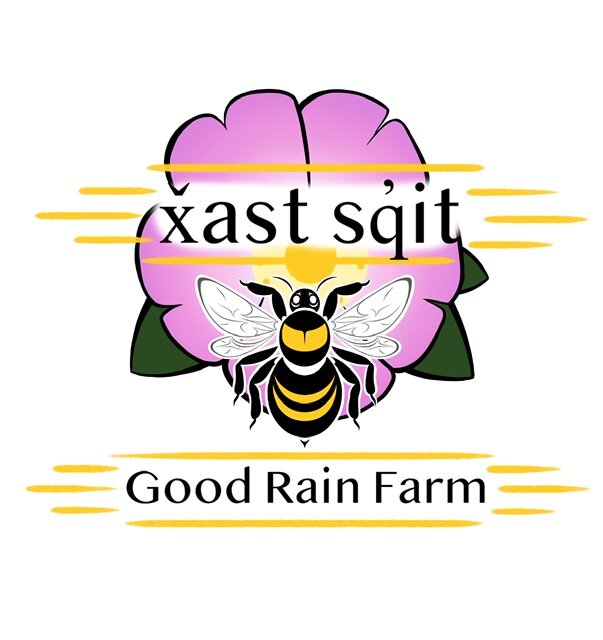Save Our Seeds - Farmer Olivia reflects on Seed Saving, Cycles of Life, Loss and Culture.
Far from a post-harvest afterthought, Seed Saving is an essential step in our farming practice.
I believe that the cycle of the season cannot reach fruition until I care for the offspring of the plants which gave life to my community. There can be no true reciprocity between the plant and myself if the seeds of each generation aren’t gathered, cleaned and stored with love. Only then, in carefully guarded hibernation, can I honor the uniquely restorative nature of this work. Saving seeds is more than marking the end of a season - it is more than just laying the groundwork for the next - it is the liminal step that binds the two acts together.
Each time I pull beans from their dried casings I remember that someday I too will be placed in that cold, damp, spring soil.
Often, I look forward to this plane of existence, the comforting void in between things. I crave those non human emotions and the non human words to express them - being there feels like deep and warm ocean water that I can sink down into and stay in forever.
For now though, I am here; standing on human feet and feeling the weight of loss and longing. The seed saving process keeps me lucid, Makes me feel like my life has value and importance. I matter because these seeds want a relationship with me and my family just as much as I want a relationship with them and theirs. We find ways of being there for each other, it's very quiet but they know that's just what my brain wants.
I have been learning so much from each seed. Each knows what they need and know that I will go through many failures until I find out what those things are. As a young Creek person in late stage capitalism this is the best teaching for me. It's incredibly frustrating to not be proficient in lifeways that sustained my people since the beginning of time. The loss is overwhelming. This feeling of inadequacy plagues me. But these seeds are also stolen relatives: they know diaspora, they know violence, they know the feeling of having their DNA changed so their offspring will someday forget all its Indigenous habits. So we understand each other but it does feel like the process of bringing these seeds back to their organic Indigenous state is easier than the undoing of my own colonization. I don't resent these seeds, I only look forward to my time when our places are switched. I now feel the palms and fingertips of a Creek seed keeper fumbling to remember deep hearted memories of what they know I need from them. But hopefully this Creek knows more than I ever knew.
I look forward to hiding my sacred secrets in my small hard shell waiting for the right sequence of steps to wake me up. I have learned only pebbles of information in an endless beach of knowledge and I humbly open myself to all that has been stolen so that we can be one step closer to food sovereignty.
As of today, all of our Hopi Blue Corn that has dried out since the summer is ready to be stored and about a quarter of the seeds will be returned to Hopi community members here in Portland, Hopi Country down south, and the Hopi diaspora. Our bush beans are dry and the germination test I did on them proved one hundred percent success rate which is promising for a first time seed saver. I am working my way through our many varieties of lettuce seeds and they are much smaller than any seed I have worked with and are particular in their needs. They are so small and delicate I feel like I will lose them if I'm not extra careful. The seeds form in groups attached to the end of the stalk, and grow little tufts of silky fibers that poof out like those of a dandelion that you blow on to make a wish. This is genius; a little breeze comes by and your offspring spread for miles. However, not so good for when you want to keep those seeds in your paper bag and not your neighbor’s backyard.
My handmade seed sifter prototype is complete after reformulating over and over again the design and dimensions each time new problems arose. Something I've always felt good about is being grounded in my carpentry skills. Recently for whatever reason these building projects have proven more difficult than I want to admit. Each day, a new challenge.
This coming summer x̌ast sq̓it Farm will be putting our newest project to work as a Seed Saving CSA. Save Our Seeds is a community engagement practice in seed saving and seed rematriation. A chance for settlers and non-Native people on Stolen Chinook Lands to participate in the process of seed saving and the labour that it involves. An opportunity for Indigenous folks in our area to learn and connect with their own culture through the power of food sovereignty.
Mvto,
Olivia

